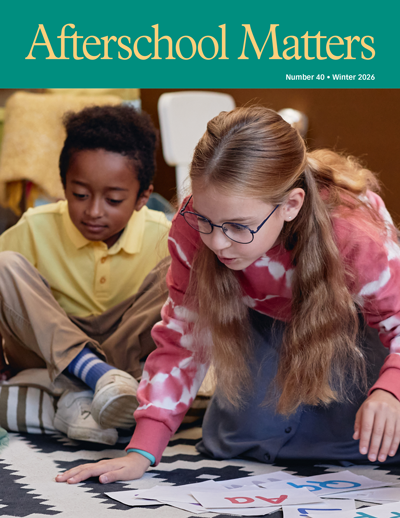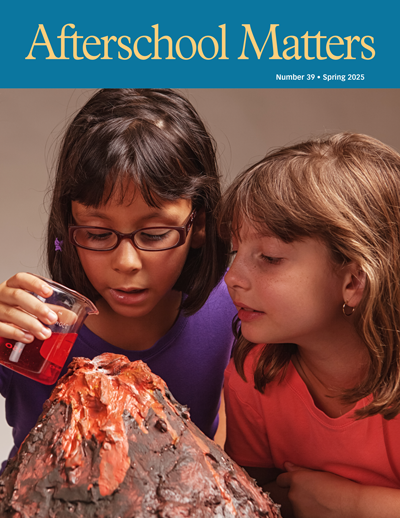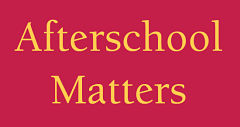Welcome from the Managing Editor of Afterschool Matters, Fall 2018
By Georgia Hall
This month brought me to a milestone: my 40th high school reunion. The celebration included a tour of our high school, which inspired a great deal of recollection and reminiscence. I was struck by how many times my classmates and I talked about our out-of-classroom experiences. We threw some balls around the gym, found our signatures on an old exposed beam under the stage in the drama wing, and remembered how we had rearranged Room 202 to practice mock debates for Forensics Club.
Why were these the memories that flooded our recollections? Because our experiences outside of the classroom gave us the opportunity to stretch our skills, grow our friendships, and challenge our limits. Even after 40 years of hills and valleys, we were still rooted in the foundations we had built in high school. Our out-of-class experiences were still guiding our goals and our daily lives.
The influence of extracurricular and out-of-school time programs arguably depends less on the type of activity than on the personal encounters with caring adults—the ones who carefully craft the tasks and conversations that make up each activity. My classmates and I shared rich memories of the special adults who were there with us each step of the way. This issue of Afterschool Matters opens with an interview with Ellen Gannett, who has stepped down as director of the National Institute on Out-of-School Time. Ellen has dedicated the past 35 years to the quality of young people’s experience after school. Her means to that end has been to focus on the professional growth and recognition of the committed practitioners who make up the OST program workforce.
One fruit of that work is the Afterschool Matters Practitioner Fellowship, which was, like this journal, initiated by the Robert Bowne Foundation and then adapted and expanded here at NIOST. This issue includes a peer-reviewed article and a reflective essay by two “graduates” of the fellowship, Jocelyn Wiedow and Sonia Toledo. Both focus on the very thing that has been Ellen’s passion: empowering youth workers to do and be their best for the young people in their program.
Afterschool practitioners who do their best can nurture vital skills and abilities in the young people they serve. Practitioners who are their best build caring and trusting relationships. As Ellen has taught us, the quality of these relationships is the key to growing young adults who can make positive contributions to their families, their communities, and our world.



